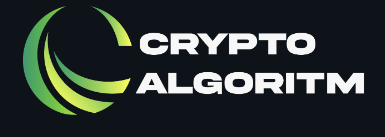Introduction to Poloniex
Poloniex is a digital currency exchange platform that offers a wide variety of cryptocurrency trading options. Founded in 2014 by Tristan D’Agosta, the platform has become one of the leading names in the cryptocurrency exchange market. Poloniex is well-known for its advanced trading features, high security level, and robust API services. However, despite its popularity and positive aspects, there have been a number of criticisms and concerns raised about the platform.
Trading Options and Features
Wide Variety of Cryptocurrency Options
Poloniex offers a broad range of cryptocurrencies for trading, including Bitcoin, Ethereum, Litecoin, and many others. This wide variety makes it a flexible platform for traders interested in diversifying their portfolios.
Advanced Trading Features
Poloniex provides a range of advanced trading features, such as margin trading and lending. The platform also offers detailed analytics and real-time updates, which can be beneficial for experienced traders.
Robust API Services
For developers and businesses, Poloniex provides a robust API, allowing them to integrate the platform’s services into their own applications.
Security Measures
Security is a vital aspect of any cryptocurrency exchange, and Poloniex takes this issue seriously. The platform uses advanced security measures, including two-factor authentication, to protect users’ funds and personal information. However, it’s worth noting that Poloniex suffered a significant security breach in 2014, leading to the loss of 12.3% of its total Bitcoin holdings.
Customer Support and User Experience
One of the major criticisms of Poloniex is its customer support. Users have reported slow response times and inadequate resolutions to their issues. This lack of effective customer support can be a significant drawback for users, especially in a market as volatile and unpredictable as cryptocurrency trading.
In terms of user experience, Poloniex’s interface is generally considered to be user-friendly and intuitive. However, some users have reported that the platform can be slow and prone to glitches, particularly during periods of high market volatility.
Fees and Charges
Poloniex operates on a maker-taker fee schedule, which is common in the cryptocurrency exchange industry. While its fees are competitive, some users have complained about hidden charges and lack of transparency in the platform’s fee structure.
Regulatory Compliance
Poloniex is based in the United States, and as such, it is subject to U.S. regulations. In 2018, the platform was acquired by Circle, a Boston-based financial services company. Following the acquisition, Circle announced plans to register Poloniex with the U.S. Securities and Exchange Commission, which would make it one of the first regulated cryptocurrency exchanges. However, it’s unclear whether this registration has been completed.
Conclusion
In conclusion, while Poloniex offers a wide range of cryptocurrencies and advanced trading features, it is not without its drawbacks. The platform has faced criticism for its customer support, occasional technical issues, and questions around its regulatory compliance. Therefore, while it may be a suitable choice for experienced traders, novice traders or those seeking robust customer support may wish to consider other options. As with any financial decision, potential users should conduct thorough research before choosing to trade on Poloniex.





I had a terrible experience with Poloniex. The platform was filled with glitches and errors, making it impossible to execute trades effectively. Customer service was virtually non-existent, leaving me feeling frustrated and helpless. I would not recommend using Poloniex as a broker for cryptocurrency trading.